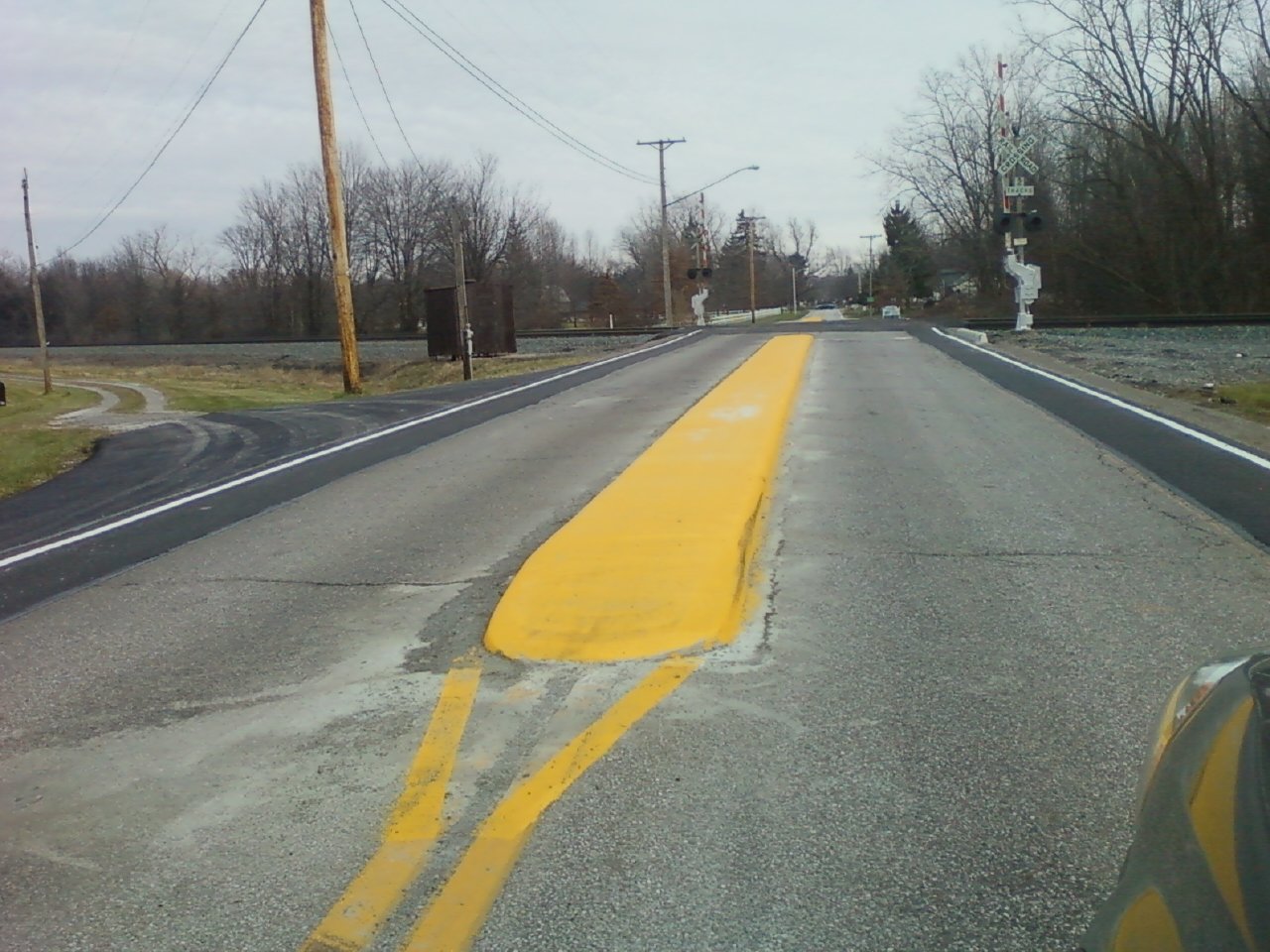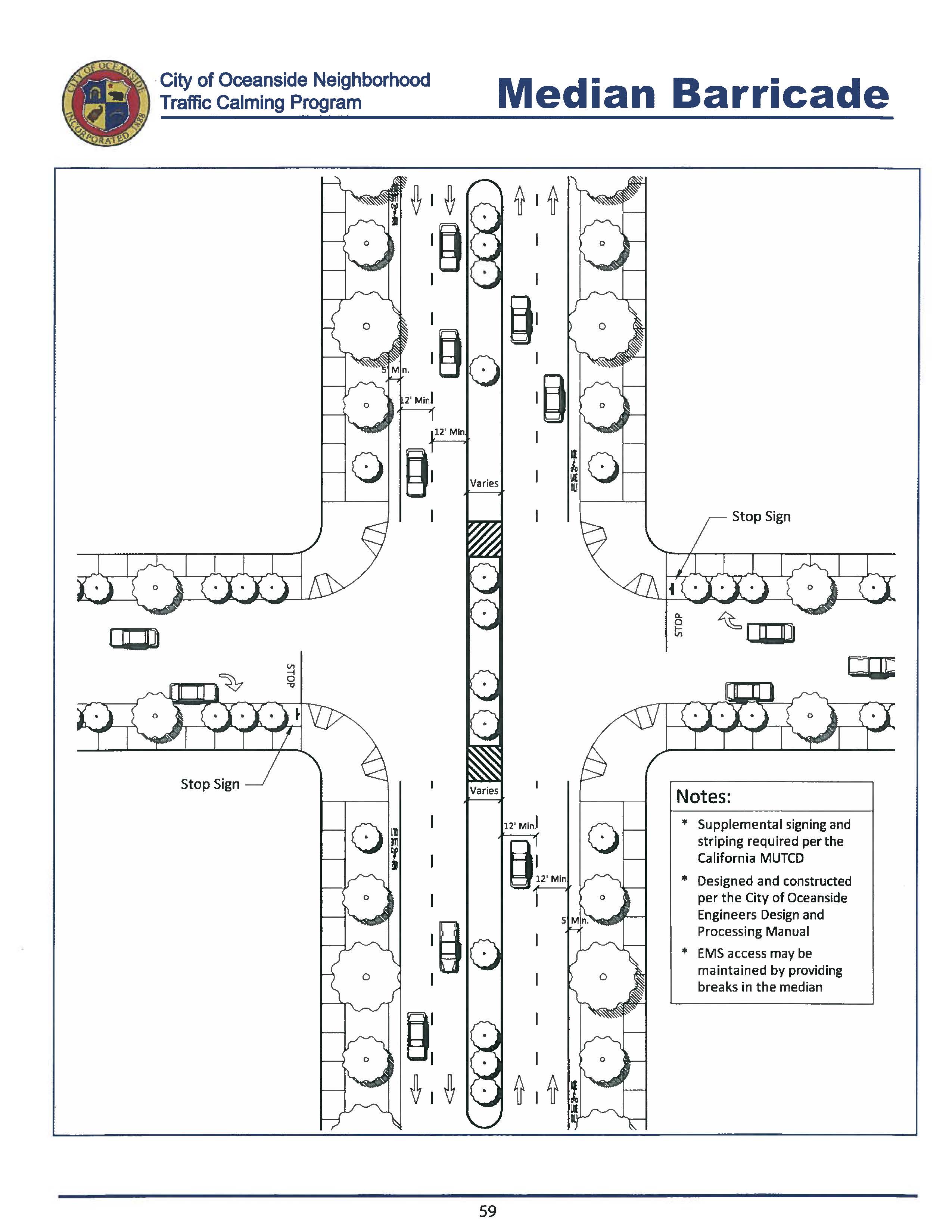Device name(s): Median Barricade/Medians
Approximate Cost: $250 per square foot ($5000 – $15,000)
Speed Reduction: 2 – 3 mph
Definition: A median barricade is a raised island placed in the center of a roadway to restrict left-turn or through traffic access from a side street. Median barricades typically replace a two-way left turn lane or are placed in the middle of a wide roadway. Emergency access and access to intermittent side streets may be maintained by providing breaks in the median. The purpose of a median barricade is to reduce traffic volumes across a major street or reduce conflicts at an intersection. Median barriers can block left turn motorist, which can be beneficial to pedestrians
Fast Facts:
- Can be used on Local Street- yes
- Can be used on Collector- yes
- Can be used on Arterial- yes
- Reduces Speed- no
- Reduces Volume- yes
- Noise Impact- no
- Restricts Access- yes
- Bicyclist Impact- possible
- Transit Impact- yes
- Parking Impact- no
- Emergency Response Impact- possible
Advantages:
- reduces traffic volume along the roadway
- reduces conflicts at intersection
- can eliminate cut through traffic
- changes driving patterns
- increases pedestrian safety for crossing streets
- people with mobility impairments benefit from divided and decreased crossing distances due to the presence of the pedestrian refuge in the center of the street
- can a positive aesthetic value
Disadvantages:
- impact access
- increase the trips lengths
- only applicable on wide roads
- increases response time for emergency vehicles
- transfers traffic to other local streets
- creates circuitous roots for local residents emergency vehicle services
Criteria/Application(s)
- neighborhoods with non-local traffic volume problems

